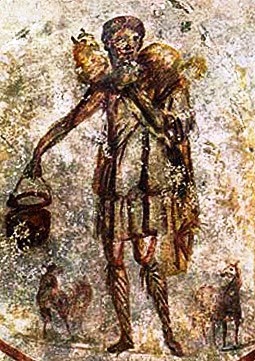Ratzinger e o futebol*
"(…) O jogo seria assim uma espécie de tentativa de regresso ao paraíso: sair da seriedade escravizante do dia-a-dia e da sua angústia vital para entrar na seriedade livre do que não tem de ser e, por isso mesmo, é belo. Neste sentido, o jogo, de certa maneira, excede a vida quotidiana. Mas, antes do mais, apresenta ainda um outro carácter, sobretudo para as crianças: é iniciação à vida. Simboliza a própria vida e, por assim dizer, antecipa-a de forma livre. Parece-me que o fascínio do futebol consiste essencialmente em conjugar estes dois aspectos de uma forma muito convincente.
O futebol obriga o homem, primeiro, a exercitar o autodomínio, na medida em que através do treino se torna senhor de si próprio, este senhorio lhe concede a superioridade e esta a liberdade. O futebol ensina-lhe também, sobretudo, a disciplina do agir em comum. Como jogo de equipa, obriga à ordenação do próprio no todo. Une em virtude da meta comum. Sucesso e insucesso individual residem no sucesso e insucesso do todo. O futebol ensina, por último, uma adversariedade leal, em que a regra comum, a que todos se submetem, permanece o elo unitivo no antagonismo. E, para além disso, quando corre bem, ensina a liberdade do lúdico, ao dissolver novamente a seriedade daquele antagonismo jogado na liberdade do jogo acabado.
O espectador identifica-se com o jogo e com os jogadores, tornando-se, deste modo, partícipe da comunhão e da adversariedade, da sua seriedade e da sua liberdade: os jogadores tornam-se símbolos da própria vida, o que se repercute neles. Eles sabem que as pessoas se vêem espelhadas e confirmadas neles.
Claro que tudo isto pode ser pervertido por um espírito de negócio, que tudo submete à seriedade sombria do dinheiro e inverte o jogo em uma indústria, que gera um mundo ilusório de dimensões assustadoras. Mas mesmo este mundo ilusório não poderia subsistir, se não tivesse por base a positividade subjacente ao jogo: o ensaio da vida e a exaltação da vida em direcção ao paraíso perdido. Em ambos os casos, trata-se de procurar uma disciplina da liberdade. Na vinculação à regra conjunta, exercitar o agir em comum, o antagonismo e o lidar consigo próprio. Pensando em tudo isto, talvez possamos, realmente, reaprender a vida com o jogo. Porque nele se revela algo fundamental: nem só de pão vive o homem; mais, o mundo do pão é apenas prolegómeno do verdadeiramente humano, do mundo da liberdade. A liberdade, porém, vive da regra, do domínio (de si), que aprende o agir em comum e a adversariedade justa, a independência face ao sucesso exterior e à arbitrariedade e, assim, se torna verdadeiramente livre."
(J. Ratzinger, 03.06.1978)
*Post dedicado, em particular, a todos os intelectuais.

















.jpeg)



